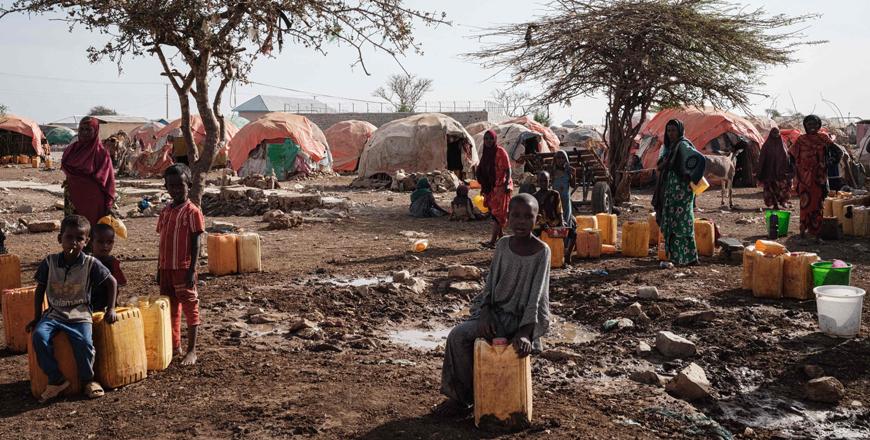You are here
UN worried about lack of funds to tackle Somalia drought
By AFP - Mar 09,2022 - Last updated at Mar 09,2022
NAIROBI — The United Nations warned on Wednesday that it faces a crippling lack of funds to tackle Somalia's devastating drought, which has been "overshadowed" by other humanitarian crises including the war in Ukraine.
The troubled Horn of Africa nation is being ravaged by drought, which has affected 4.5 million people, nearly 30 per cent of its population, as of February, following three consecutive seasons of poor rains.
But so far the UN has only secured three percent of the $1.46 billion (1.23 billion euros) required to meet the needs of Somalis, Adam Abdelmoula, the UN humanitarian coordinator for Somalia, told a press conference in Kenya's capital Nairobi.
"The situation is grave and is deteriorating rapidly," he said.
"The outlook was already grim prior to the outbreak of the Ukraine crisis. We have been overshadowed by the crisis in Tigray, Yemen, Afghanistan and now Ukraine seems to suck all the oxygen that is in the room," he added.
“I am extremely concerned.”
Around 671,000 people have been forced to flee their homes in search of water, food or pasture for their livestock, more than double the 245,000 who were displaced in December.
In recent years, natural disasters, not conflict, have been the main drivers of displacement in Somalia, a war-torn nation that ranks among the world’s most vulnerable to climate change.
But the crisis has struggled to gain traction among the international community, Abdelmoula said.
“I visited various capitals last year, five European capitals and Washington DC in an effort to put Somalia back on the map,” he said.
“As we say in the humanitarian community, we have lost the CNN effect so to speak.”
Already hit by an invasion of locusts between 2019 and 2021 as well as the COVID-19 pandemic, Ethiopia, Kenya and Somalia are all struggling with a months-long drought.
“Projections indicate that the next rainy season expected in April may also be below average. If we don’t act early, we can find ourselves in an extreme situation by June,” Abdelmoula warned.
“The cost of inaction or late action is simply too high.”
In 2017, early humanitarian action averted a famine in Somalia, a sharp contrast to 2011 when 260,000 people, half of them children under the age of six, died of hunger or hunger-related disorders.
Related Articles
NAIROBI — Somalia's "rapidly worsening" drought has left more than 2 million people facing severe food and water shortages, the United Nati
NAIROBI — Millions of people in Somalia are at risk of famine, with young children the most vulnerable to the worsening drought, UN agencies
NAIROBI — An estimated 13 million people in Kenya, Somalia and Ethiopia are facing severe hunger as the Horn of Africa experiences its worst












